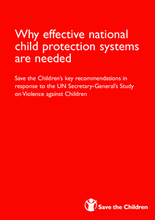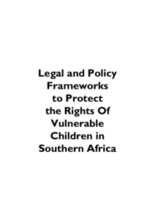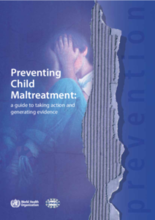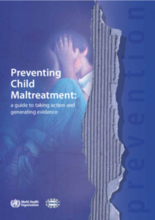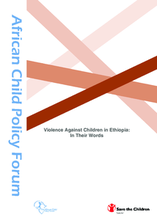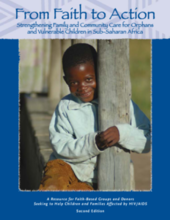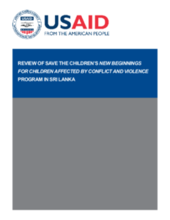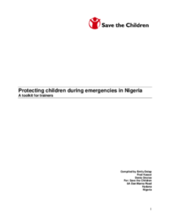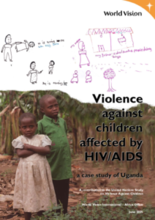Displaying 991 - 1000 of 1050
Save the Children’s response to the UN Secretary General’s Study on Violence Against Children. It outlines the key steps required by governments towards ending all forms of violence against children.
Reviews legal and policy frameworks for the protection of OVC rights in 10 Southern African countries. Includes key concerns and recommendations. Appendix includes country-specific details of National Policies on Orphans and Vulnerable Children and National Plans of Action.
A brief 2-page document that highlights the importance of child participation, post care planning, guarding against abuse, and connecting residential institutions with the surrounding community.
Practical information and tools for dealing with child abuse in the home environment. Includes relevant policy recommendations, study questionnaires, and measurement tools.
Multi-disciplinary information and tools on assessing the incidence of child abuse and neglect, the risk and protective factors prevalent in families and communities, and support services to prevent and respond to violence against children.
Analysis of child perceptions and testimonials that comprises the third and final set of results from a major study of violence against children in Ethiopia. Emphasizes child participation for implementation of effective policy.
A tool to encourage donors to fund community programs that keep children in family care, rather than simply funding orphanages. Describes the many strategies being used to invest in community-based care, and contains specific program examples.
An evaluation of a programme in Sri Lanka that aimed to resettle and reintegrate children affected by armed conflict, prevent and respond to child abuse, and develop community based alternatives to institutional care.
A comprehensive training toolkit for organizations and individuals who are directly involved in child protection and welfare during emergencies. Covers key topics related to children in emergencies, and includes learning points, classroom and field exercises, suggested itineraries and handouts.
Report documenting participatory research conducted on violence against children affected by HIV/AIDS in Uganda. Particular focus on the stigmatisation and discrimination.

